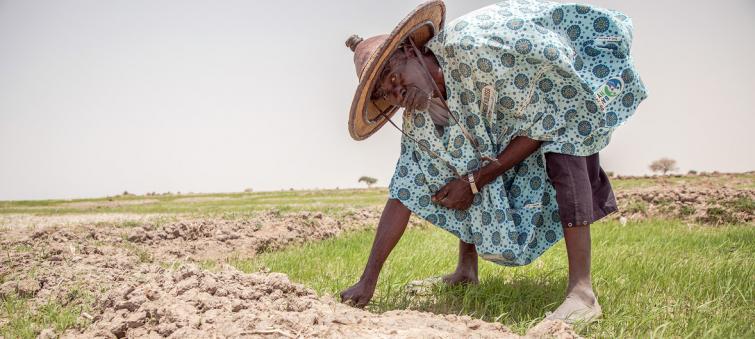
Sub-Saharan Africa faces grave hunger challenges in 2020: UN food relief agency
New York/IBNS: At the dawn of the next decade, a new World Food Programme (WFP) forecast of global hunger hotspots has revealed that escalating hunger will challenge sub-Saharan Africa in the first half of 2020.
According to the WFP 2020 Global Hotspots Report, millions of people in Zimbabwe, South Sudan, Democratic Republic of Congo and the Central Sahel region will require life-saving food assistance in the coming months – the sheer scale and complexity of which will stretch the UN food relief agency’s capacity to the limit and require generous donor support for a ramped-up humanitarian response.
WFP is fighting big and complex humanitarian battles on several fronts at the start of 2020 – WFP chief
WFP Executive Director David Beasley spelled out: “WFP is fighting big and complex humanitarian battles on several fronts at the start of 2020”.
“In some countries, we are seeing conflict and instability combine with climate extremes to force people from their homes, farms and places of work”, he elaborated. “In others, climate shocks are occurring alongside economic collapse and leaving millions on the brink of destitution and hunger.”
Averting famine
Against the backdrop of an imploding economy and when Zimbabwe is entering the peak of its lean season and food is at its most scarce, WFP observed that the country has more hungry people now than it has had over the past decade.
And as concerns grow over the impact of a regional drought that could drag even more countries down in the first months of the year, WFP is planning assistance for some four million people in Zimbabwe.
“Last year, WFP was called upon to bring urgent large-scale relief to Yemen, Mozambique after Cyclone Idai, Burkina Faso and many other crises to avert famine,” said Margot Van Der Velden, WFP Director of Emergencies. “But the world is an unforgiving place and as we turn the page into 2020, WFP is confronting new, monumental humanitarian challenges that we need to address with real urgency.”
In El Salvador, farmers have received training in soil conservation in order to improve crop yields., by Photo: WFP/Rein Skullerud
Hunger abounds
Turning to the Americas, Haiti is undergoing a rapidly evolving crisis with escalating unrest paralyzing the economy and driving food prices out of many people’s reach.
And in Asia, insecurity and drought in Afghanistan is leaving over one-third of the population, or more than 11 million people, severely food insecure.
In the Middle East, WFP has had success in Yemen where it scaled up food assistance by 50 per cent and supported eight million people a month at the beginning of 2018 to 12 million by the end of the year.
Looking towards 2020, WFP remains alert to growing food needs in Iraq and Lebanon, where civil unrest and macro-economic crisis are leading to an increase in food insecurity.
WFP estimates it will require more than $10 billion to fully fund all its operations in more than 80 countries around the world in the coming year.
“Every year at WFP we plan ahead for the next 12 months and ask for support from the generous governments, private sector institutions and members of the public who help us reach our humanitarian and development goals,” said Mr. Beasley.
“As an agency that depends entirely on voluntary donations, we have a responsibility to show WFP can continue to be the most efficient and effective global organization delivering the kind of food assistance that saves lives and changes lives across the world”, concluded the UN food relief agency chief.
Photo caption and credit:
WFP/Simon Pierre Diouf
In Mali, recurrent floods and droughts have made life difficult for farmers.
Support Our Journalism
We cannot do without you.. your contribution supports unbiased journalism
IBNS is not driven by any ism- not wokeism, not racism, not skewed secularism, not hyper right-wing or left liberal ideals, nor by any hardline religious beliefs or hyper nationalism. We want to serve you good old objective news, as they are. We do not judge or preach. We let people decide for themselves. We only try to present factual and well-sourced news.







